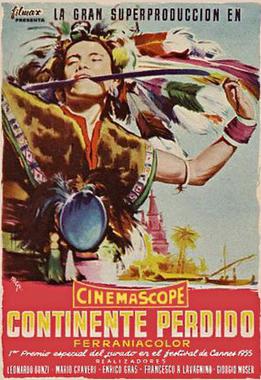| Der verlorene Ball | |
|---|---|
| Directed by | Kurt Weiler |
Release date |
|
| Country | East Germany |
| Language | German |
Der verlorene Ball (English: "The Lost Ball") is an East German film. It was released in 1959.
The Aryan Games were a proposed replacement for the Olympic Games in Nazi Germany. Proposed by Nazi sports organizer Carl Diem and subsequently adopted by Adolf Hitler, these multi-sport games were supposed to be housed permanently in Nuremberg at the planned "German Stadium", that had been designed by Nazi architect Albert Speer, but was never built.
Hans Ackermann was a German dramatist, living in Zwickau. He was a close friend of Paul Rebhun, another contemporary dramatist.

The Lost Honour of Katharina Blum, or: how violence develops and where it can lead is a 1974 novel by Heinrich Böll.
GeorgWickram was a German poet and novelist.

Katja Flint is a German actress. She has appeared in over 100 film and television productions since 1982. Among her more notable roles is Marlene Dietrich in the film biopic Marlene (2000).
Melissa Müller is an Austrian journalist and author.
The German Farmers' Party or German Peasants' Party was a German agrarian political party during the Weimar Republic, existing from 1928-33. It has been characterised as part of a wider attempt by the middle classes to assert their economic interests in the mid to late 1920s by founding their own, fairly narrowly based, parties, including the Christian-National Peasants' and Farmers' Party and in urban areas the Reich Party for Civil Rights and Deflation and Reich Party of the German Middle Class. The party was banned and made illegal by the ruling NSDAP in 1933.

Continente Perduto is a 1955 Italian documentary film about Maritime Southeast Asia including Borneo.
The Enmannsche Kaisergeschichte is a modern term for a hypothetical Latin historical work, written in the 4th century, but now lost.

The Lost One is a 1951 West German crime drama film directed by Peter Lorre and starring Lorre, Karl John and Renate Mannhardt. It is an art film in the film noir style, based on a true story. Lorre wrote, directed, and starred in this film, his only film as director or writer. The film's translated name has been used as the title of his biography.
Expedition Robinson was the Swiss version of the Swedish reality show Expedition Robinson and it debuted in September 1999. Seeing the success of the Danish, Norwegian, and Swedish versions of the show TV3 in Switzerland decided to produce their own version of the show. Due to low ratings, the show was cancelled after just two seasons. At the time the show was cancelled the third season was nearly done being shot. Despite this the third season was never broadcast.

Friedrich Rudolf Max Laurence was a German stage and film actor.
Max Fassbender was a German cinematographer. He is known for his work with directors Fritz Lang and Richard Oswald.
Rog is a remote abandoned settlement in the Municipality of Kočevje in southern Slovenia. The area is part of the traditional region of Lower Carniola and is now included in the Southeast Slovenia Statistical Region. Its territory is now part of the village of Trnovec.

Nina Grosse is a German film director and screenwriter. She has directed 14 films since 1983. Her 2004 film Olga's Summer was entered into the 26th Moscow International Film Festival.

The Lost Shoe is a 1923 German silent fantasy film directed by Ludwig Berger and starring Helga Thomas, Paul Hartmann and Mady Christians. Its plot is loosely based on that of Cinderella. It was shot at the Babelsberg Studios in Berlin. The film's sets were designed by the art director Rudolf Bamberger. The film premiered on 5 December 1923 at the Ufa-Palast am Zoo in Berlin. It was produced by Decla-Bioscop which was by then part of the large UFA conglomerate.

The Prodigal Son is a 1934 German drama film directed by Luis Trenker and starring Trenker, Maria Andergast and Bertl Schultes. A South Tyrolean immigrates to New York City, but ultimately finding the U.S. is not for him, returns to his home village.
Albert Benitz was a German cinematographer who worked on more than ninety films. He also directed the 1949 film Das Fräulein und der Vagabund. During the 1940s, he was under contract to Terra Film and worked with Leni Riefenstahl during the era.
Herbert Kaufmann was a German Ethnologist, journalist, photographer and writer. He is known for his body of work concerning Africa, particularly – in the English-speaking world – his translated novel, Red Moon and High Summer, an adventure story set among the Tuaregs. The original German edition, Roter Mond und Heiße Zeit (1957), won the 1958 Deutscher Jugendliteraturpreis.

Theodor Hahn was a German hydrotherapist, naturopath, writer, and vegetarianism activist.